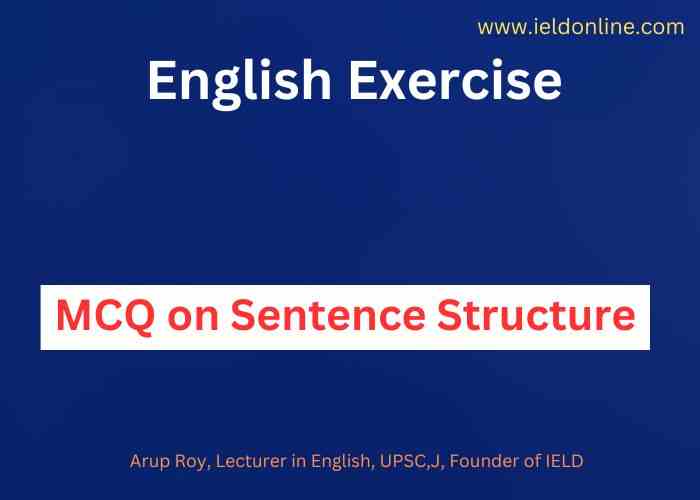What is the basic unit of sentence structure?
- phrase
- clause
- word
- sentence
What is the subject of a sentence?
- The person or thing performing the action
- The action being performed
- The direct object of the action
- The indirect object of the action
What is the predicate of a sentence?
- The person or thing performing the action
- The action being performed
- The direct object of the action
- The indirect object of the action
What is a phrase in sentence structure?
- A group of words that includes a subject and a verb
- A group of words that does not include a subject and a verb
- A group of words that always functions as a complete sentence
- A group of words that includes a subject but not a verb
What is a clause in sentence structure?
- A group of words that includes a subject and a verb
- A group of words that does not include a subject and a verb
- A group of words that always functions as a complete sentence
- A group of words that includes a subject but not a verb
What is the difference between an independent clause and a dependent clause?
- An independent clause can stand alone as a sentence, while a dependent clause cannot
- An independent clause always comes before a dependent clause
- A dependent clause always comes before an independent clause
- An independent clause is always shorter than a dependent clause
What is a simple sentence?
- A sentence that contains only one clause
- A sentence that contains two or more clauses
- A sentence that contains a subject and a verb, but no object
- A sentence that contains an object, but no subject
What is a compound sentence?
- A sentence that contains only one clause
- A sentence that contains two or more clauses
- A sentence that contains a subject and a verb, but no object
- A sentence that contains an object, but no subject
What is a complex sentence?
- A sentence that contains only one clause
- A sentence that contains two or more clauses
- A sentence that contains a subject and a verb, but no object
- A sentence that contains an object, but no subject
What is a compound-complex sentence?
- A sentence that contains only one clause
- A sentence that contains two or more clauses
- A sentence that contains a subject and a verb, but no object
- A sentence that contains an object, but no subject
What is a coordinating conjunction?
- A conjunction that connects independent clauses
- A conjunction that connects dependent clauses
- A conjunction that connects a subject and a verb
- A conjunction that connects an object and a verb
Which of the following statements accurately describes the difference between a complex and a compound sentence?
- A complex sentence has one independent clause and one or more dependent clauses, while a compound sentence has two or more independent clauses.
- A complex sentence has two or more independent clauses, while a compound sentence has one independent clause and one or more dependent clauses.
- A complex sentence and a compound sentence are the same thing and can be used interchangeably.
- A complex sentence has one subject and one verb, while a compound sentence has more than one subject and more than one verb.
Which of the following statements accurately describes the importance of knowing sentence structure?
- Knowing sentence structure is not important as long as the words are in the correct order.
- Understanding sentence structure can help you to communicate more clearly and effectively.
- Sentence structure only matters in formal writing, but not in informal communication.
- Sentence structure is irrelevant if you have good grammar skills.

